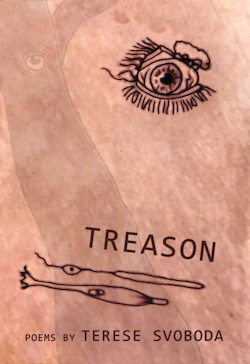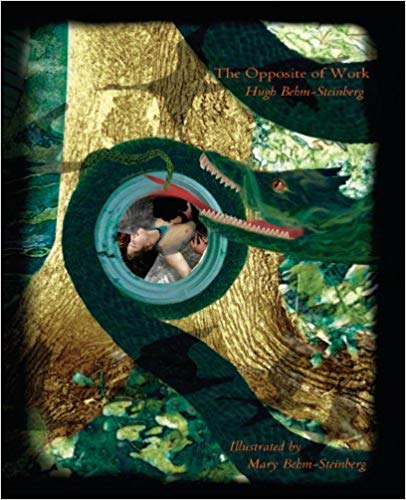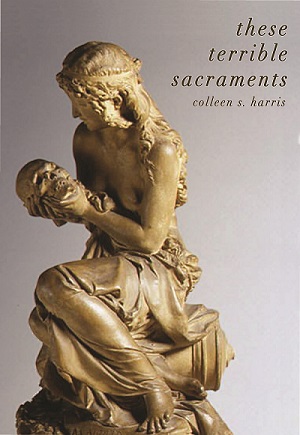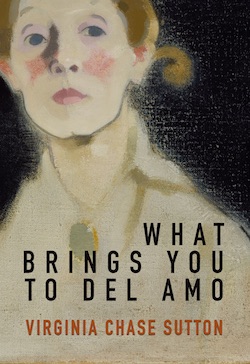Titles
|
|

|
Treason by Terese Svoboda
Treason is a book centered on betrayals, unflinchingly and with a wry and feminist eye. The poems are sometimes funny, sometimes strange, always hard-hitting. Svoboda's topics are timeless, the poems themselves worthy of mythology.
From "Eurydice Abandoned in the Caves of Hades":
You light cigarettes, unnerved, defenseless
in the blue of that smoke. You see the roots
of trees, your sisters' hair unpinned, you see
it leads out, The sky! Then the guide rapes you,
steals your purse, and disappears. You really seethe
|
 |
The Opposite of Work by Hugh Behm-Steinberg
The Opposite of Work is a breathless, staccato, meandering path through a mind. It's delightful and surprising, like a fast-growing vine. It's what good poetry should be. The poems are paired perfectly by the equally delightful and surprising drawings of Mary Behm-Steinberg. The book will snatch you, and leave you on the other side, bewildered and alive.
Watch a video of Hugh and Mary Behm-Steinberg's visual poetry collaboration conceived for the book The Opposite of Work. The illustrated poem created in this flip-book is entitled "On Dreams."
|

|
These Terrible Sacraments by Colleen S. Harris
These Terrible Sacraments tells a story of military deployment and its aftermath, on the soldier, the family left at home, and the family created on return. Told with frankness and told beautifully, these poems speak truth in its many facets. It is true that war is horrible. Even so, it is true that beauty remains in the world. And it is true that we must bear witness to what humanity endures and creates. Harris guides us through the journey.
|

|
What Brings You to Del Amo by Virginia Chase Sutton
"Virginia Chase Sutton's poems—many set in mental hospitals and/or dealing with psychiatric problems—delight with their fresh imagery, vivid perceptions, unusual perspectives, and general liveliness, even when their subject is suffering."
-Charles Harper Webb, Judge for the Samuel French Morse Prize, 2007
"Face it: as much as we love to glorify and extol the powers of imagination, there are some things you have to see up close and personal in order to be able to bring them into the rarified circumstance of a poem. These would include death, and even worse, all manner of human degradation and suffering possible. Still, bearing witness, no matter how intimate, is no guarantee of good art either. Virginia Chase Sutton manages, no, she illuminates a seamlessness between what is real, and what is barely imaginable in our lives with such precision that you are compelled to bear witness beside her. The poems of What Brings You to Del Amo are relentless in their pursuit of us, and relentless too in their pursuit of the highest level of craft and care."
-Bruce Weigl, author of The Abundance of Nothing
"'Never construct narrative,' says a hospital shrink in Virginia Chase Sutton's riveting suite of poems, 'all you get are scraps.' But the marvel of Sutton's book is her ability to order a flashing series of scenes in order to tell, almost recklessly, not without hope, not without tenderness in the face of desolation, a life. A shattered life—but the irony of that doctor's advice is that these fragments shored up against their speaker's ruin make, indeed, a coherent, vital testament, tenaciously alive."
-Mark Doty, author of Fire to Fire: New and Selected Poems, National Book Award
|
 |
In the Voice of a Minor Saint by Sarah J. Sloat
Sarah J. Sloat's chapbook, In the Voice of a Minor Saint, showcases small moments that belie great significance and trumpet the author's ear for the specific. This collection is rich with metaphor, and Sloat uses form in a way that emphasizes the lyric. Broad in scope, while still giving the reader intimate insight into the speaker's psyche, these pieces are touched with the divine.
|
Home * Titles * Authors * Submit * Masthead * Contact * Sundress
| | |